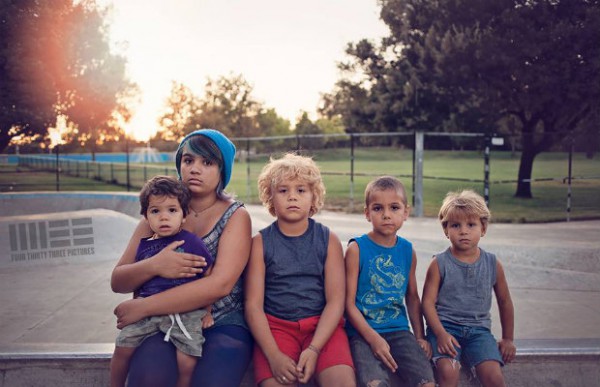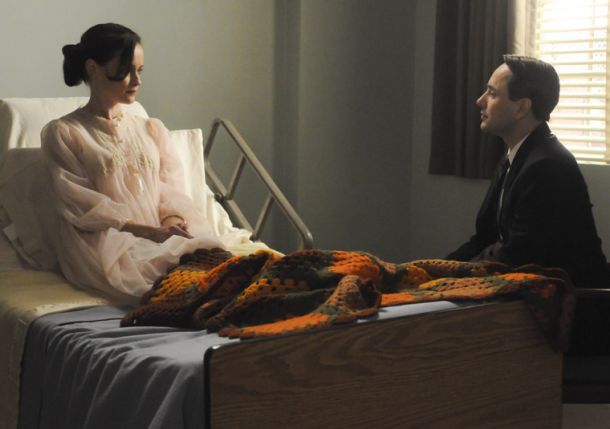Belle
Written by Misan Sagay
Directed by Amma Asante
UK, 2013
There is no question about the absolute elegance and cautionary observations that captures the provocative essence of the well-received 19-century costume drama Belle. British-Ghanaian filmmaker Amma Asante oversees an inviting and lyrical exposition entrenched in the societal shades of rejection, feminism, racism and cultural identity crisis. Interestingly, the examination of the color barrier controversies usually associated with the historical backbone of America’s sordid past is now punctuated across the pond where colonial England is placed under the revealing microscope involving its early days into institutionalized slavery among the high society class. Belle not only is a radiant piece of entertainment but also skillfully serves as a global history lesson into the darkness of humanity demonstrated well beyond the American shorelines.
Asante and screenwriter Misan Sagay, a British-Nigerian product, forge a creative and quietly captivating sisterhood as they examine the underlying soul and spirit of their bi-racial protagonist Belle (portrayed piercingly by British-South African actress GuGu Mbatha-Raw) whose mixed race heritage will solidify an emotional isolation in quest for liberation and civil acknowledgement. English intolerance and indifference about a young woman’s questionable bloodline is what makes Belle poignantly compelling in an old-fashioned and literate period piece that could have easily embraced its clichéd convictions but opted to tread in inspired truthfulness.
Based on a true story, Belle is the illegitimate daughter of a British Royal Navy officer in the form of Captain Sir John Lindsay (Matthew Goode) and a deceased African slave woman. Lindsay decides to do right by his daughter Belle and take her back to England so she can reside with his uncle Lord Mansfield (Tom Wilkinson) and his wife Lady Mansfield (Emily Watson). Lindsay cannot parent Belle because duty calls on the high sea so his prominent uncle, a notable Chief Justice, can raise her within the wealthy walls of their posh English estate.
Belle is not the only young girl on the fancy premises as the Mansfields have another niece to watch in the person of Elizabeth Murray (Sarah Gadon). Although Belle and Elizabeth are cousins by blood they will simply grow up together as close sisters under their wealthy uncle’s lavish roof. Living with privilege and power is seemingly advantageous for Belle but at what cost will her skin tone remind her that it cannot take away the disdain some may unfairly hold against her? Naturally her fully white “sister-in-arms” Elizabeth will never experience such social hostility so whatever so-called equal upbringing that Belle initially felt she shared with cousin/sister Elizabeth now interjects a serious wake-up call in the name of dejected racial awareness.
As adult women much is expected of Belle and Elizabeth to excel and carry on the honored family tradition of fortune and class status especially if they can land an aristocrat worthy of their sacred hand. Unfortunately for Belle, her partial blackness will serve as a constant reminder that she is subjected to the daily cruelties of the hard-nosed prejudices of the day. Belle may have a well-to-do white military hotshot for a father that entitles her to all the prim and proper niceties in her dear daddy’s English homeland. The problem, however, is that it is the inherited African lineage from her late slave mother that fuels the continual psychological brainwashing and harassment.

Intriguingly, Belle echoes the sins of racial scrutiny of yesteryear but truth be told it can easily reflect the same kind of restrictive foolishness that exists today in a cynical world where cultural purity is questioned and criticized. Asante’s disciplined direction and Sagay’s insightful and absorbing script force feeds the audience’s curiosities and anxieties for how Belle copes with her conflicted dilemma of acceptance. Mbatha-Raw’s solid performance as the frustrated Belle is strangely poetic both in pronounced pain and passion. Belle is being pulled apart by two completely different worlds that make up her tortured individuality yet she cannot find common ground with her genetic makeup.
The costume drama genre almost begs for an atmospheric stroking of pretentiousness but Belle remarkably relives the account of real-life case study Dido Elizabeth Belle by connecting the dramatic dots and fleshing out a scrutinized feminine characterization that feels vulnerable, contemplative and unassumingly defiant. Women of all colors need a sense of belonging and empowerment and Belle trades in on such impacted sentiments. In fact, Belle resourcefully links slavery and womanhood as dismissive commodities—something that signifies the inequity for all ages past and present.
Radiant and thought-provoking, Belle effectively works as a noteworthy historical melodrama that reinforces a Jane Austen-esque allure with a genteel radical approach to conveying the true human frailties under the guise of English propriety.
— Frank Ochieng




